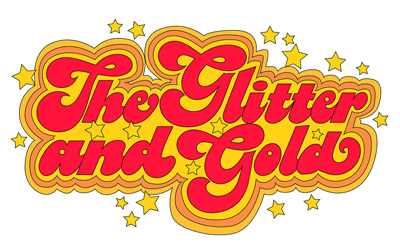Before I start, know this. You are unique. No one-size-fits-all approach is right for you. Even when you develop a good method for finding rare records, you must evolve with the changing times. And even so, no method is perfect. Each has its strengths and flaws.
Nevertheless, as a record store owner who deals in rare recordings in all forms I have picked up a thing or two searching for vinyl. And I would like to share some of my experiences with you. Being a contrarian by nature, what I am about to say may differ from what you have seen on television shows about superstar pickers. And perhaps even what other record collectors have told you. This is why I feel it’s even more important to share.
Secret Number 1 to collecting rare records: “Don’t miss the forest for the trees.” Great music is all around you
This is my rule number one. And if I can be forthright, it is where a lot of experienced crate diggers and vinyl influencers chasing after a big score get it wrong! I am going to say this to you clearly. If you focus too narrowly on a single goal when looking for rare records, you will overlook important details and opportunities that surround you.
When I hear crate diggers and even professional buyers talk about going through thousands of records to find that one Holy Grail, I always think to myself this. “How many incredible records did they miss?”
If you have studied the psychology of selective attention, you might already know the “Invisible Gorilla” experiment. This is a test where you are asked to watch a video of students passing basketballs between one another and then asked if you remember seeing the person in the gorilla suit walk past. Most people exclaim, “There is no gorilla suit! I would have seen that!” You then rewatch the same video, and there it is, plain as day!
Looking for rare records is not much different. If you place too much value on certain artists or eras, you will miss breathtaking finds. I have applied this logic at hundreds of thrift stores, garage sales, record events, and even at other record stores. Take the time to look, take that extra moment to investigate that record or label you’re not familiar with. Over time, this dramatically increases the likelihood of finding rare records to add to your collection.
Finds that illustrate this point
To illustrate, I’d like to share three finds we’ve made at Glitter Records over the past year. Before I do, I want to emphasize the importance of approaching the topic of valuing rare records with modesty and humility. Records can hold significant emotional value for others and may be tied to specific memories. This connection can make the idea of buying and selling music a delicate matter, so discretion is key. It’s crucial to acknowledge that the true worth of a record often goes beyond its market value. I appreciate if you will keep this information to yourself unless using it for research or education.
One of our noteworthy finds came from a box of old 7″ vinyl singles destined for the local dump. At first glance, the box was filled with generic major label releases from the 1970s. However, a closer inspection revealed an original EMI New Zealand pressing of Mark Williams‘ ‘A House For Sale’, which later sold for $234.00. We paid twenty cents for it.
Another notable discovery was a $2 vinyl copy of Julian Jay Savarin‘s Waiters On The Dance, found while thrift shopping for old books. This record was sold for $399. Similarly, we came across DJ Jiten‘s BMW3 Original CD album for twenty cents and sold it for $152.00. These experiences reinforce the value of keeping an open mind and thoroughly exploring the unfamiliar. Had we focused solely on specific artists, well-known albums, or even formats of recorded music, we might have missed these incredible finds.
Secret Number 2 to collecting rare records: Cultivate a healthy scepticism about your ability to pick
I was recently able put my ability to pick rare records to the test at a large secondhand book event here in Brisbane, Australia. Even before the doors opened, a sizeable group of experienced crate diggers was gathering. I rushed in with them at opening time, and we all dove into the boxes of vinyl there. I admit the anticipation was getting the better of me. My heart was pounding!
I managed to cool my head and make some fast finds in the first 15 minutes. The next day I then went back to the multi-day event. And I did again the day after. I must have looked over a large collection of a few thousand vinyl and CDs three times. By now, thousands of other people had looked over the records and CDs as well.
Now this is where it gets interesting. After the event, I was generously asked if I wanted to take on the remainder of the collection—perhaps around 3,000 CDs and records in total. I agreed. After two weeks of listing these welcome curiosities on Discogs, the results were fascinating.
When it came to many of the most valuable items I came to a startling realisation. Not only did I not pick them up in that initial rush or later inspections, but I also had no memory of seeing them at all! And I went over the collection, cover by cover, spine by spine. Three times head to toe!
The brain has a powerful filter that influences how we perceive images and information, often prioritizing what we find relevant or familiar. This means celebrities, brands, and even our personal music tastes can dominate our attention. While this focus can be beneficial in many situations, it can hinder us when searching for rare records.
Luck can be good. And bad
To account for my inherent human error, I now take inspiration from an unexpected source, the world of investing. John Bogle, the founder of the Vanguard Group, championed the idea of passive investing. His strategy involves investing in a broad range of companies that mirror the overall market rather than attempting to pick individual winners. Bogle’s research demonstrates a passive approach often outperforms ambitious pickers who believe they can outsmart the market. This approach reduces errors and avoids biases that can cloud judgment.
Similarly, in record hunting, concentrating too narrowly on personal biases—whether related to genres, artists, or individual preferences—can lead us to miss valuable finds and incredible music. By broadening our perspective and actively working to overcome our biases, we can significantly enhance our chances of discovering rare and noteworthy records. In short, while we might believe we can make exceptional picks and sometimes do, over the long term, our luck tends to average out. This suggests that, in this regard, we’re not much better or worse than anyone else.
The philosopher Plato once said in The Laws that there is no harm in repeating a good thing. So I will do so here. If you can factor your human capacity for error in and slow down when you find things you are not familiar with, you will, over time, get better results.
Secret Number 3 to collecting rare records: Be persistent
Life being the maddening mix of contradictions it is, you can still get better with time even if your luck does not. Persistence trumps natural talent! One of my most closely guarded secrets to finding rare records is that quantity is a quality of its own.
As Dolly Parton says in her book Dream More, the reason she wrote ‘Jolene’ was that she wrote so many other less memorable songs that year as well. She learned from making so many mistakes. The same is true with hunting for rare records. The more hunts you go on, the more you will discover.
Do Not Sell At Any Price is a book by Amanda Petrusich who accompanies many of the most experienced record hunters on the planet on their journeys. She shows that rare record hunters go to great lengths to find the rarest of the rare. Even scuba diving near the old Paramount record factory that produced the blues shellacs on the slim hope there may be more in the river. Do not let this put you off starting off or continuing to build your career as a rare record collector. Let me explain.
How to Start collecting rare records
A great lecture on YouTube by John Tefteller, the acquirer of some of the world’s rarest records, reveals a very important point. Even the most dedicated and successful collectors find rare records the same way you can today. Tefteller, a world-renowned collector of rare records still pops in at local thrift stores to see what is there. Just in case. Any beginner can do this too!
Start modestly and don’t be afraid to lose out on the occasional find that doesn’t measure up. If you are learning from your mistakes, you are adding to your knowledge. Immediate success is not as important as experience. And experience compounds over time. In the long run, luck does not account for nearly as much as hard work and developing your ability to think outside the box.
A record store owner’s thoughts on rare records
By working consistently and adding to your knowledge of rare records, you increase the chances of making an incredible discovery. I say work, but can we consider for a moment we are talking about music? Being immersed in the culture is a reward in itself. Not to mention the experiences you have and the people you meet. The journey is as valuable as the records themselves! And each journey is going to be unique and rewarding in its own way. I wish you well with your hunting and with developing your own record collecting strategies! I hope you enjoy the adventure!








